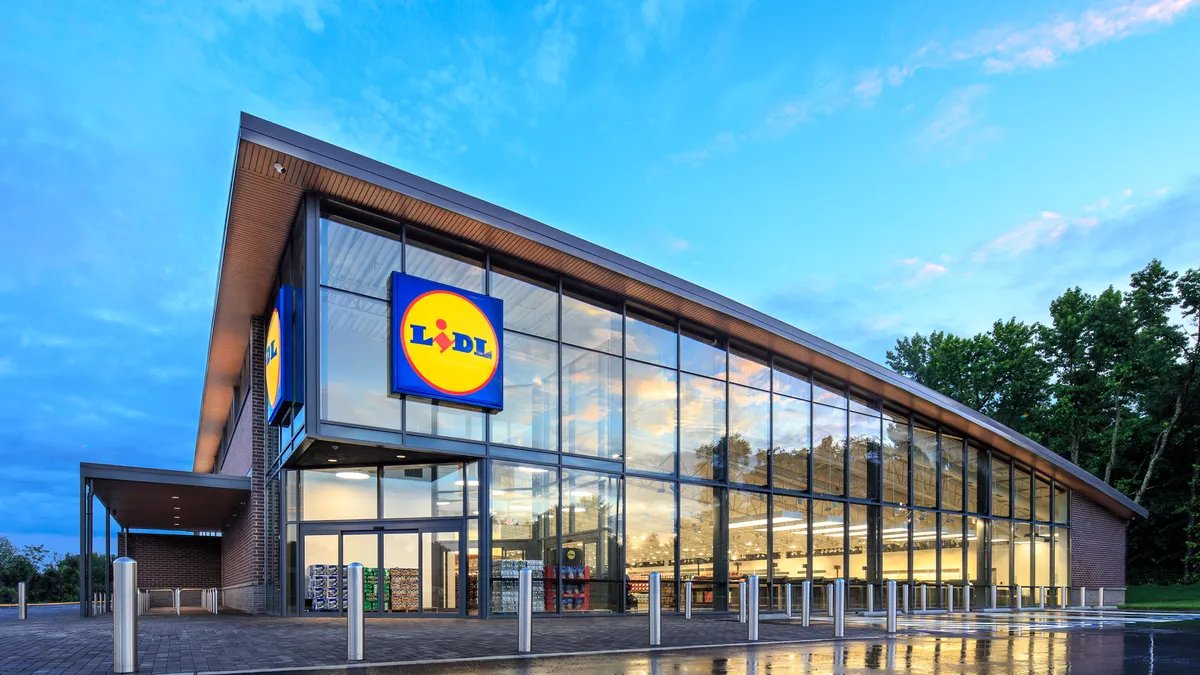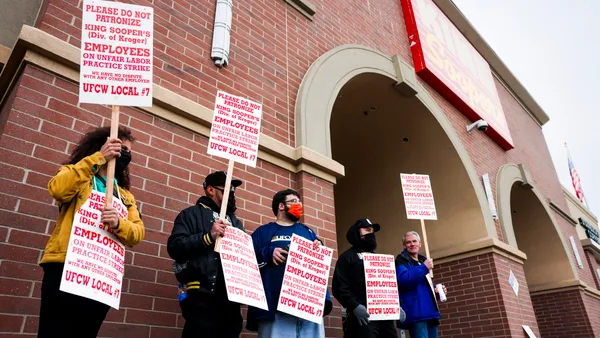Dive Brief:
- Lidl U.S. will purchase 27 Best Market stores in New York and New Jersey, the company said in a statement. The move allows Lidl, which made its U.S. debut in 2017, to expand its regional presence and enter a new market in Long Island, New York. The terms of the acquisition agreement were not disclosed. The transaction is expected to close during the coming months.
- Lidl said it plans a step-by-step transition process that will begin in 2019. It will involve the remodeling, reinvestment and rebranding of Best Market stores to Lidl locations.
- In an interview with Grocery Dive, Bill Bishop, chief architect of consulting firm Brick Meets Click, said the acquisition is a way for Lidl to "jump-start" its U.S. expansion after an underwhelming first year in business. "Lidl leadership is looking to put some points on the board," he said.
Dive Insight:.
Lidl, which entered the U.S. market with a splash last summer, has focused on building and owning new locations. This purchase marks the German company's first major acquisition — and potentially a change in its domestic strategy.
According to Bishop, the Best Market acquisition gives the discounter prime real estate in the northeast, but it will take more time and money than a typical conversion usually entails to bring those locations up to its exacting standards. Lidl builds stores to get product in the door and on shelves as efficiently as possible, he noted.
"They're going to undoubtedly either have to rebuild the buildings or experience a reduced productivity," Bishop said.
While the company now operates stores across seven states on the East Coast, its once-celebrated U.S. expansion has been dogged by challenges, including poor site selection and tougher-than-expected competition from entrenched retailers. As a result, the company has opened just 59 stores out of the more than 100 it hoped to have by this point.
In a sign that its U.S. strategy was floundering, the discount retailer installed a new U.S. CEO in May, selecting Johannes Fieber to take the top post. He replaced Brendan Proctor, who had spearheaded the U.S. expansion since June 2015.
The acquisition raises questions as to whether the discounter was on the right path with its U.S. expansion. Much of the East Coast is saturated with grocers. Aldi, Kroger, Ahold Delhaize banners and Walmart dominate the landscape from New Jersey to South Carolina — places where Lidl made its much-touted U.S. landing last year. Lidl's targeting of Best Market indicates the grocer is focused on obtaining better store sites and willing to shift its ground-up strategy to one that incorporates acquisition.
Bishop said that Aldi has been a particularly tough competitor for Lidl given its overlap in key markets and its push to remodel stores while also updating its assortment. With the new Best Market locations, he said, Lidl moves away from Aldi's turf to neighborhoods where it can be the marquee discounter.
"They're buying stores in locations that aren't very easy to get, and where competition with Aldi isn't that intense yet," Bishop said.
In Best Market, Lidl is adding a private, family-owned company that grew from a small fruit and vegetable stand to its fold. The first Best Market store opened in 1994, and today the small chain focuses on fresh foods — especially produce, meat, seafood, deli, dairy and bakery — as well as traditional grocery store items. Its offerings also include large selections of craft beer and wood-smoked barbecue in some stores. Lidl might consider carrying some of these characteristics over to its own stores in the New York area, and potentially other locations down the East Coast.
Lidl has touted its efforts to make adjustments to its U.S. business. This deal will put that strategy to the test. It will be important for Lidl to seamlessly integrate the Best Market stores, adding the touches Lidl is known for without alienating the smaller banner's loyal customer base.
Bishop said the pickup could be a positive for Lidl, but that the discounter shouldn't let acquisition substitute for making the tough, necessary changes it needs to make to its U.S. business.
"This is an effort to jump-start things," he said. "I think only time will tell whether it was a good start."














